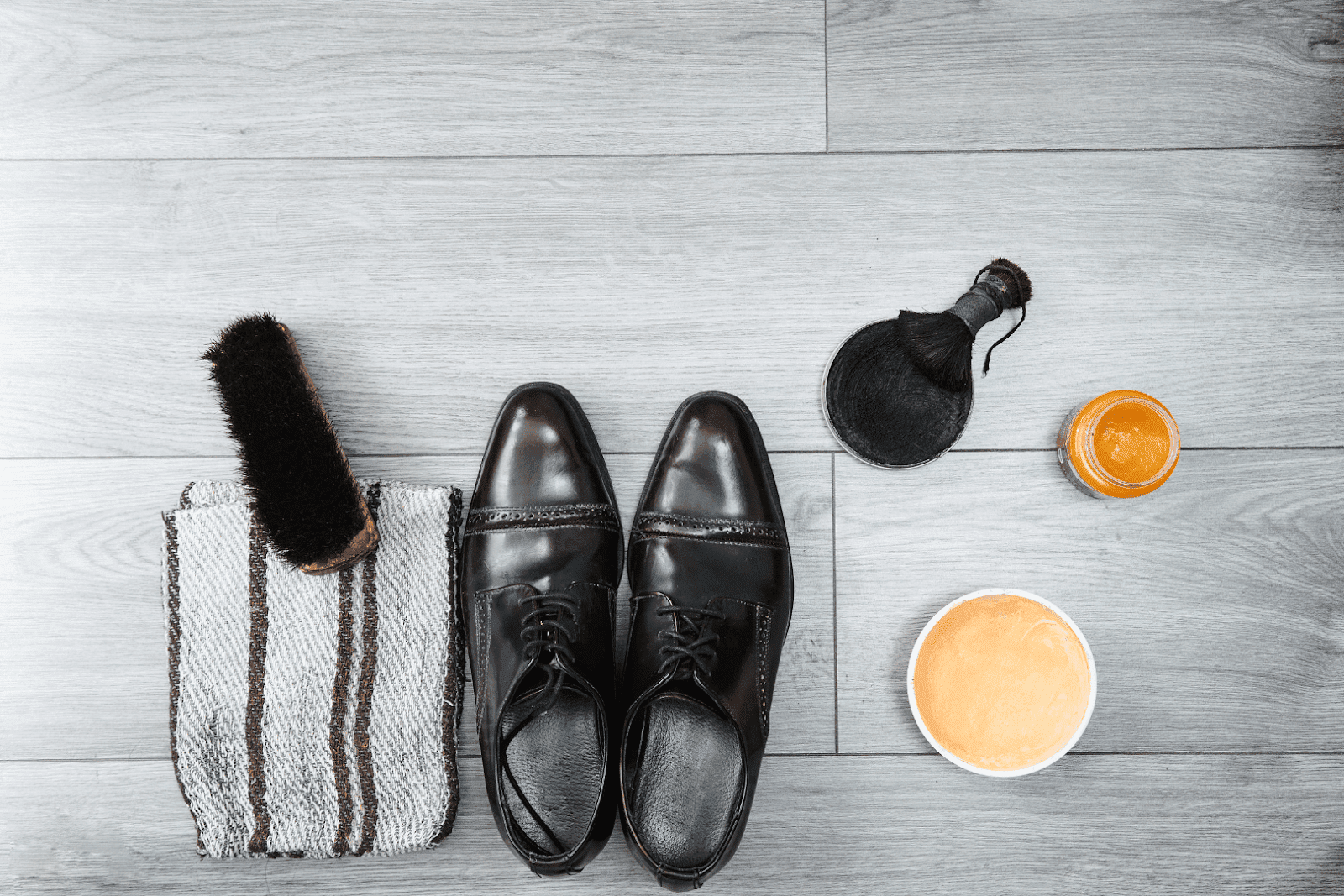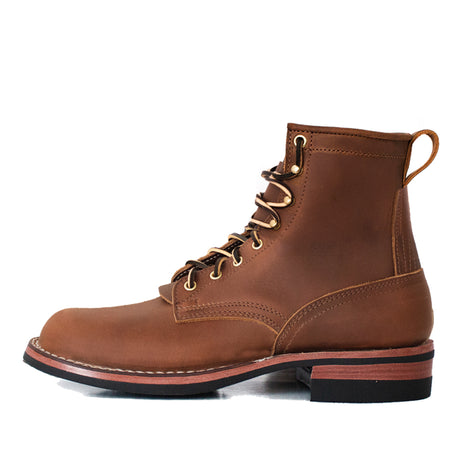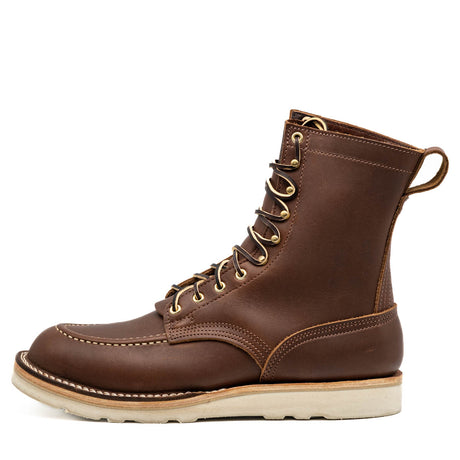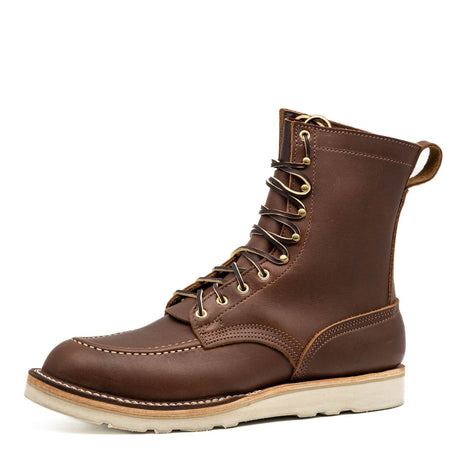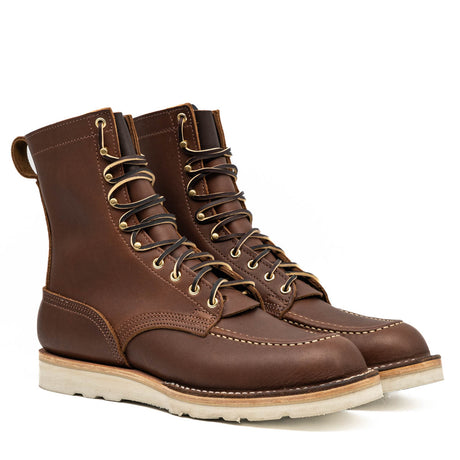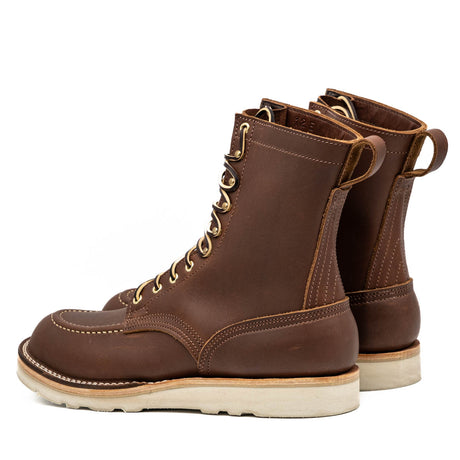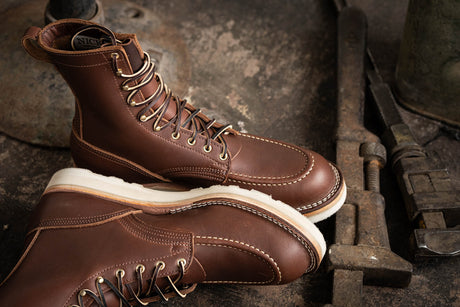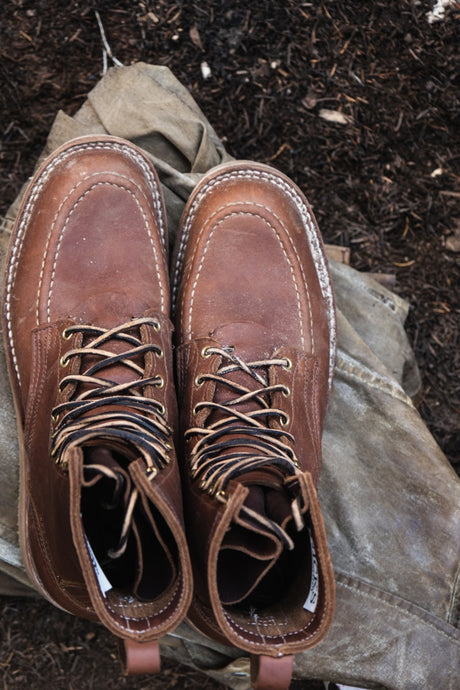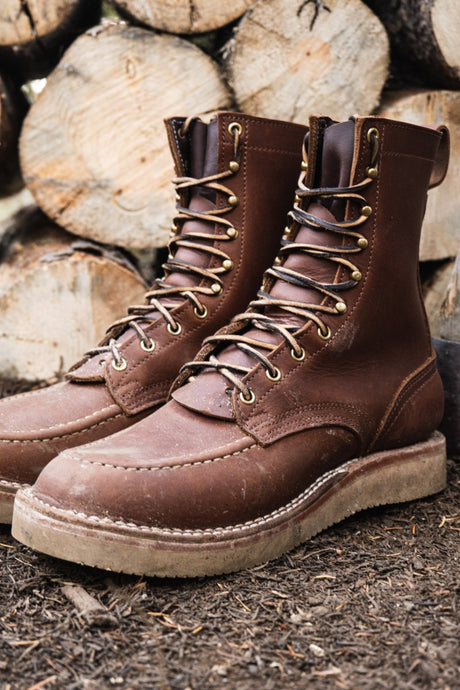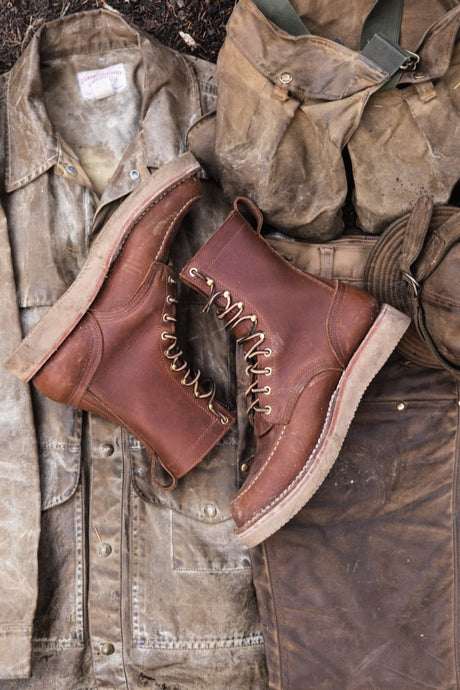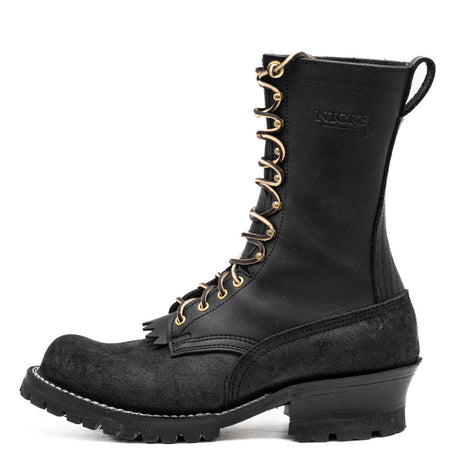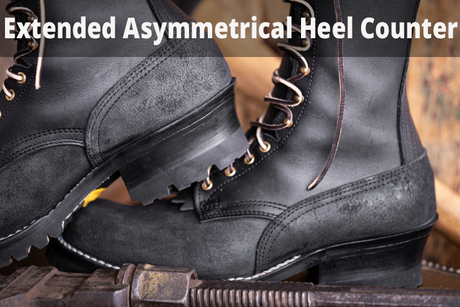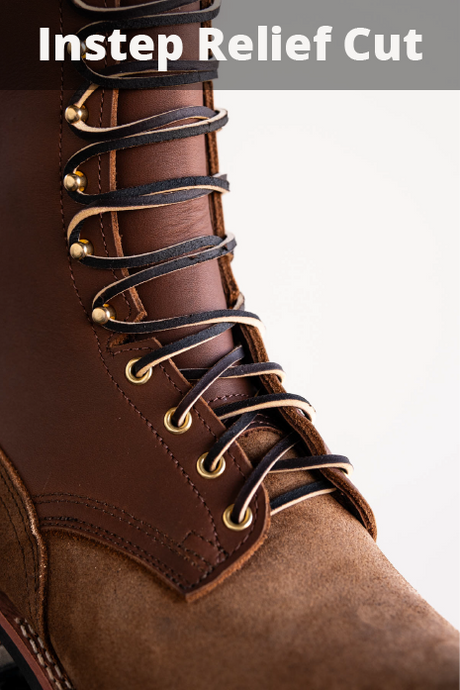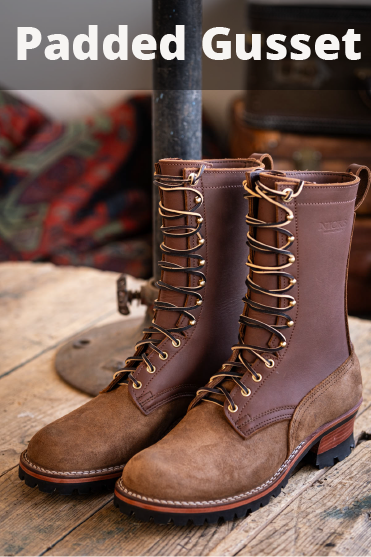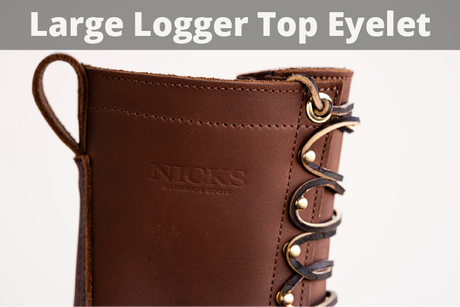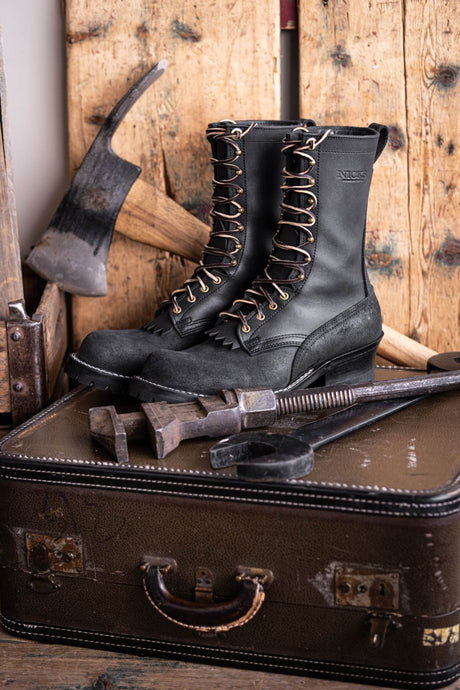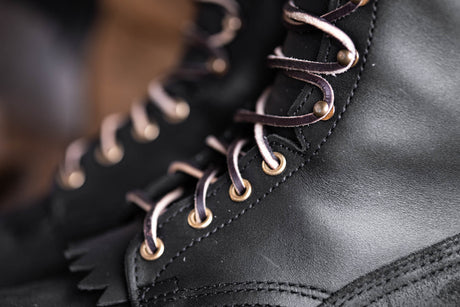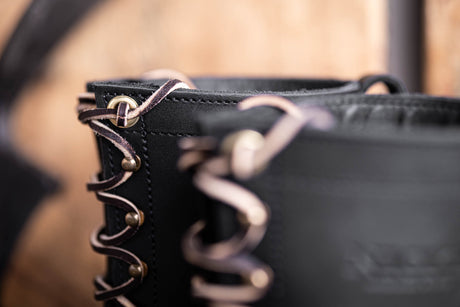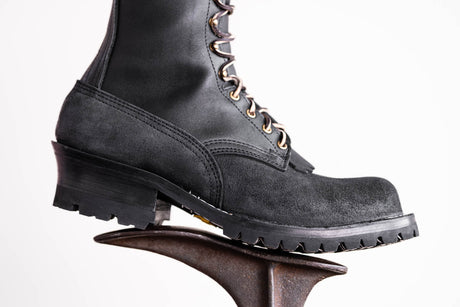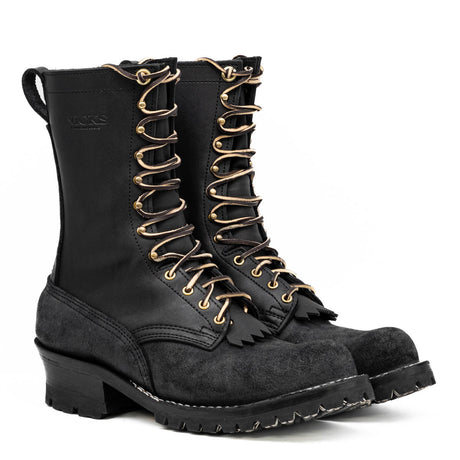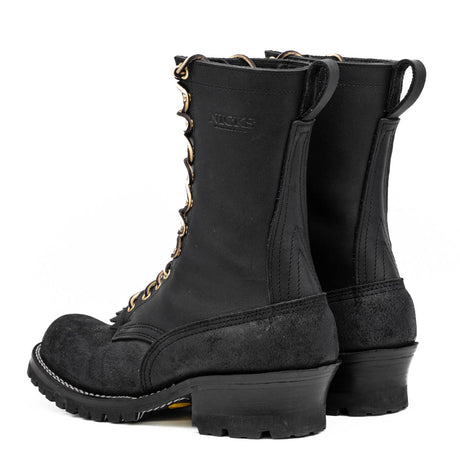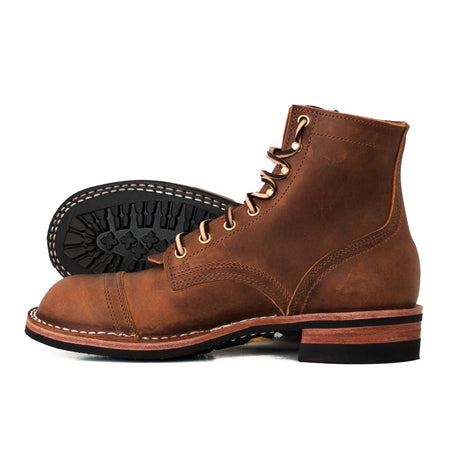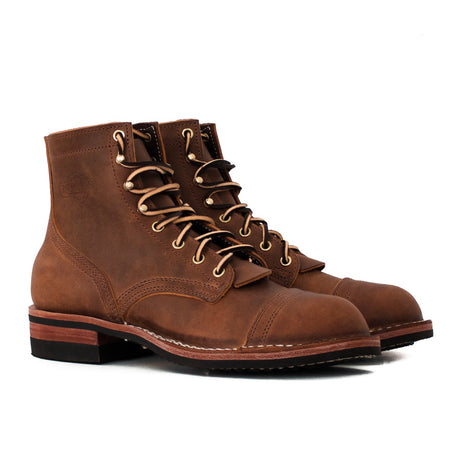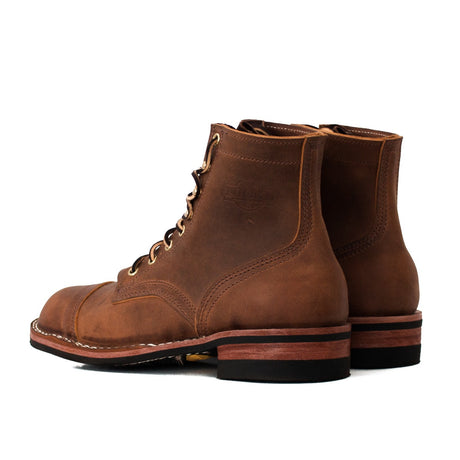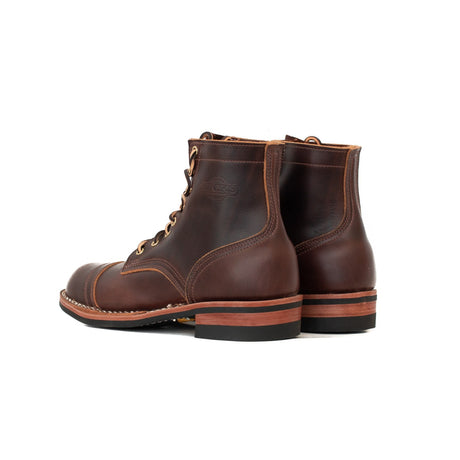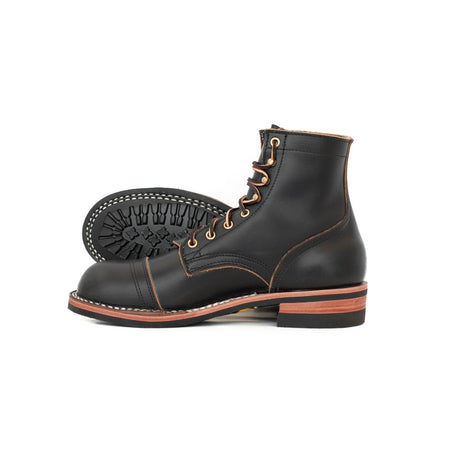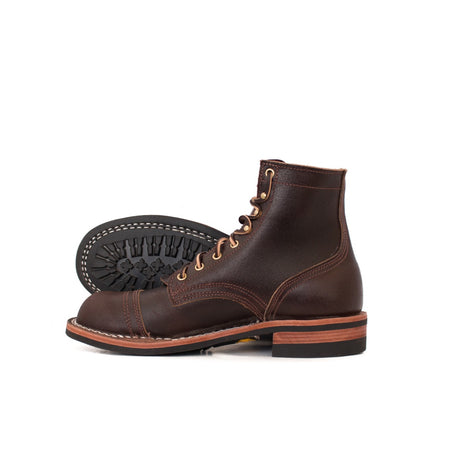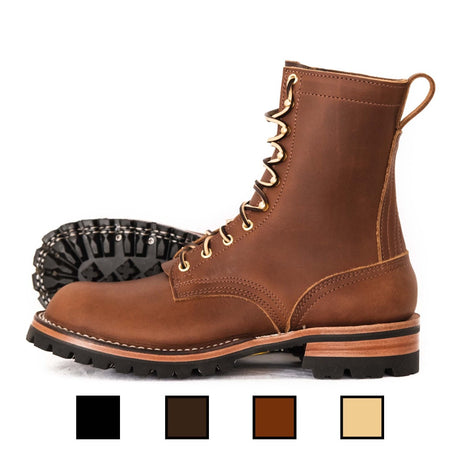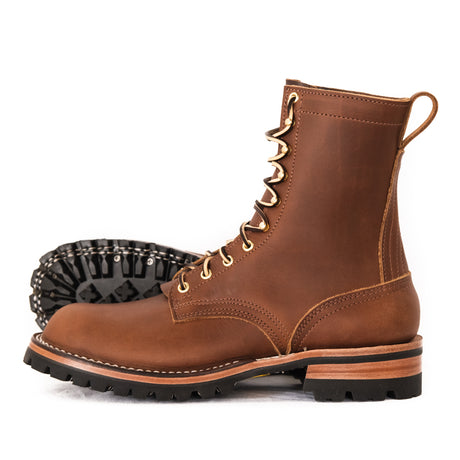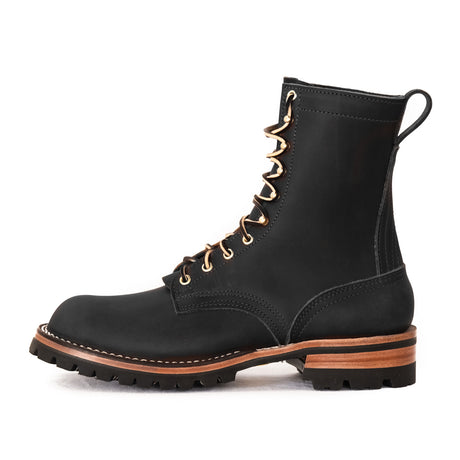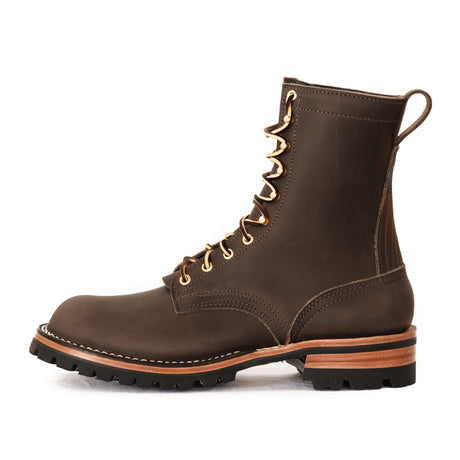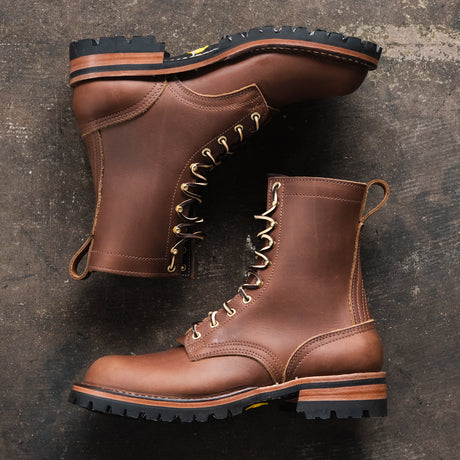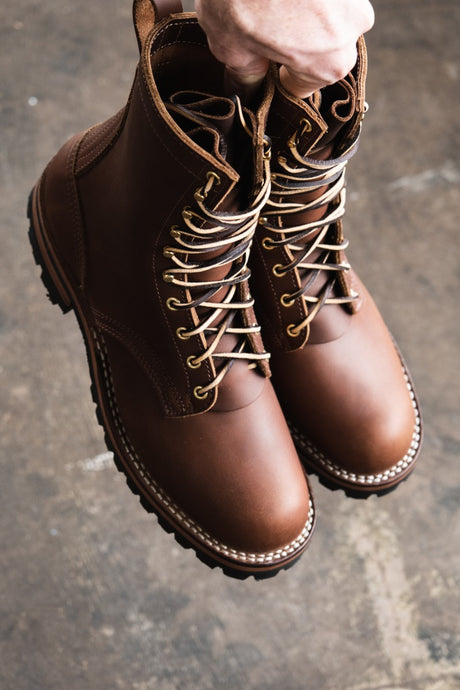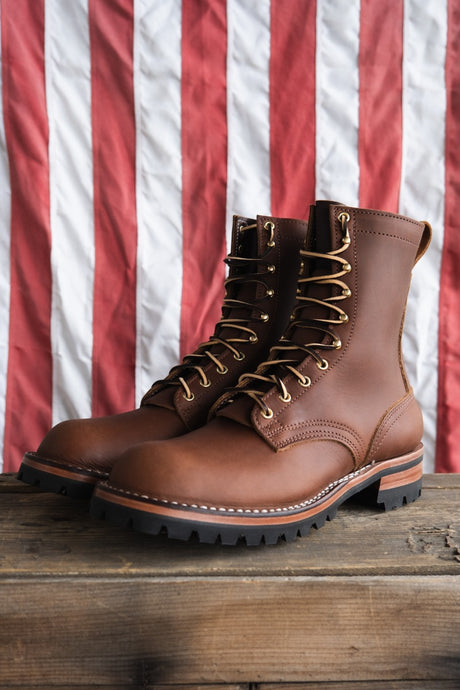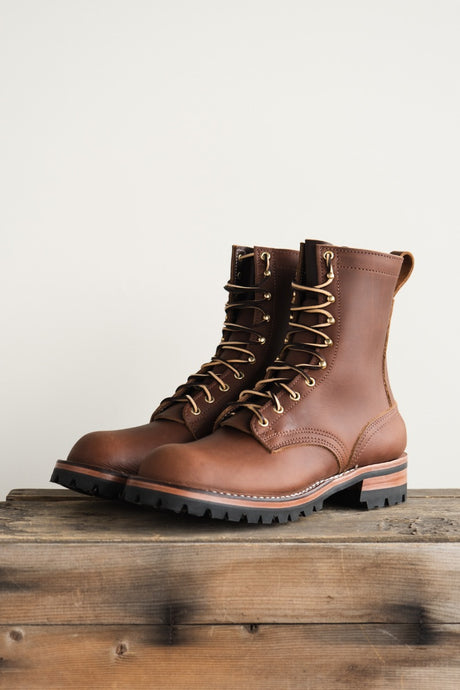Have you ever wondered how to unlock the secret to leather that ages gracefully, carrying stories and memories with each passing year? Imagine your favorite leather boots, weathered by time yet exuding an undying charm. How can you ensure that your leather goods, whether a classic jacket or elegant accessories, stand the test of time? The answer lies in mastering the art of leather care—the meticulous dance of cleaning, conditioning, and preservation. From battling stubborn stains to enhancing the material's resilience, our guide is your passport to maintaining the allure of leather craftsmanship.
Ready to transform your leather goods into timeless treasures? Discover the ultimate guide to leather care with Nicks Boots!
What Is Leather Care?
Leather care is an essential set of practices and techniques designed to maintain, protect, and enhance the quality of leather goods. Whether it's a pair of beautifully crafted boots, a timeless leather jacket, or elegant leather accessories, proper care is crucial to ensure these items stand the test of time and remain in pristine condition.
Leather care involves a combination of cleaning, conditioning, and proper storage procedures, each contributing to the overall health and longevity of the leather. By following a systematic approach, you can protect your leather items from wear and tear, environmental factors, and other potential sources of damage.
Introducing Nicks Handmade Boots: Legendary Craftsmanship For Timeless StyleAt Nicks Boots, we take pride in crafting fine leather goods, including our famous boots, that are built to last a lifetime. Our dedication to quality craftsmanship is more than just a legacy. It's a commitment shared by our team of highly skilled men and women. With years of experience and meticulous attention to detail, we've perfected our craft, ensuring each pair of Nicks Boots is truly legendary. Key Features and Benefits:
|
Preparing For Leather Care
Before you start cleaning and conditioning your leather items, it's important to prepare properly. Follow these steps to ensure the best results:
Gather The Right Supplies
For cleaning and conditioning leather, you'll need soft cloths, a leather cleaning solution (or a mixture of mild soap and water), a leather conditioner, and a horsehair brush.
Check The Label
Different types of leather may require specific care instructions. Check the label or manufacturer's recommendations before proceeding.
Test In An Inconspicuous Area
To avoid potential damage, test the cleaning and conditioning products in a hidden spot on the leather item first.
Cleaning Leather Properly
Proper cleaning is vital to remove dirt, stains, and oils that can accumulate on leather goods. Here's how to clean leather effectively:
Remove Surface Dust And Dirt
Gently wipe the leather with a soft, dry cloth or use a vacuum cleaner with a soft brush attachment.
Spot Cleaning
For minor stains, use a slightly damp cloth with a mild soap and water solution. Rub the stain gently, and then wipe with a clean, damp cloth. Make sure to dry the area immediately.
Deep Cleaning
For more stubborn stains or overall deep cleaning, use a leather-specific cleaning solution following the manufacturer's instructions.
Avoid Harsh Chemicals
Never use bleach, ammonia, or any harsh chemicals as they can damage the leather.
Leather Storage And Maintenance Tips
Proper storage and maintenance will prolong the life of your leather items. Here are some essential tips:
Store In A Cool, Dry Place
Keep your leather goods away from direct sunlight and heat sources, as they can cause the leather to fade or crack.
Use Dust Bags Or Cloth Wraps
When not in use, store your leather items in dust bags or wrap them in a soft cloth to protect them from dust and scratches.
Avoid Plastic Or Airtight Containers
Leather needs to breathe, so avoid storing it in plastic bags or airtight containers for extended periods.
Regularly Condition Leather
Conditioning helps replenish the natural oils in leather and keeps it supple. Apply a leather conditioner as recommended by the manufacturer.
What Is The Lifespan Of Leather?
The lifespan of leather largely depends on how well it's cared for and the quality of the leather. Properly maintained leather goods, such as well-crafted boots, can last for decades. However, if neglected, leather can deteriorate more quickly. Regular cleaning, conditioning, and proper storage can significantly extend its lifespan.
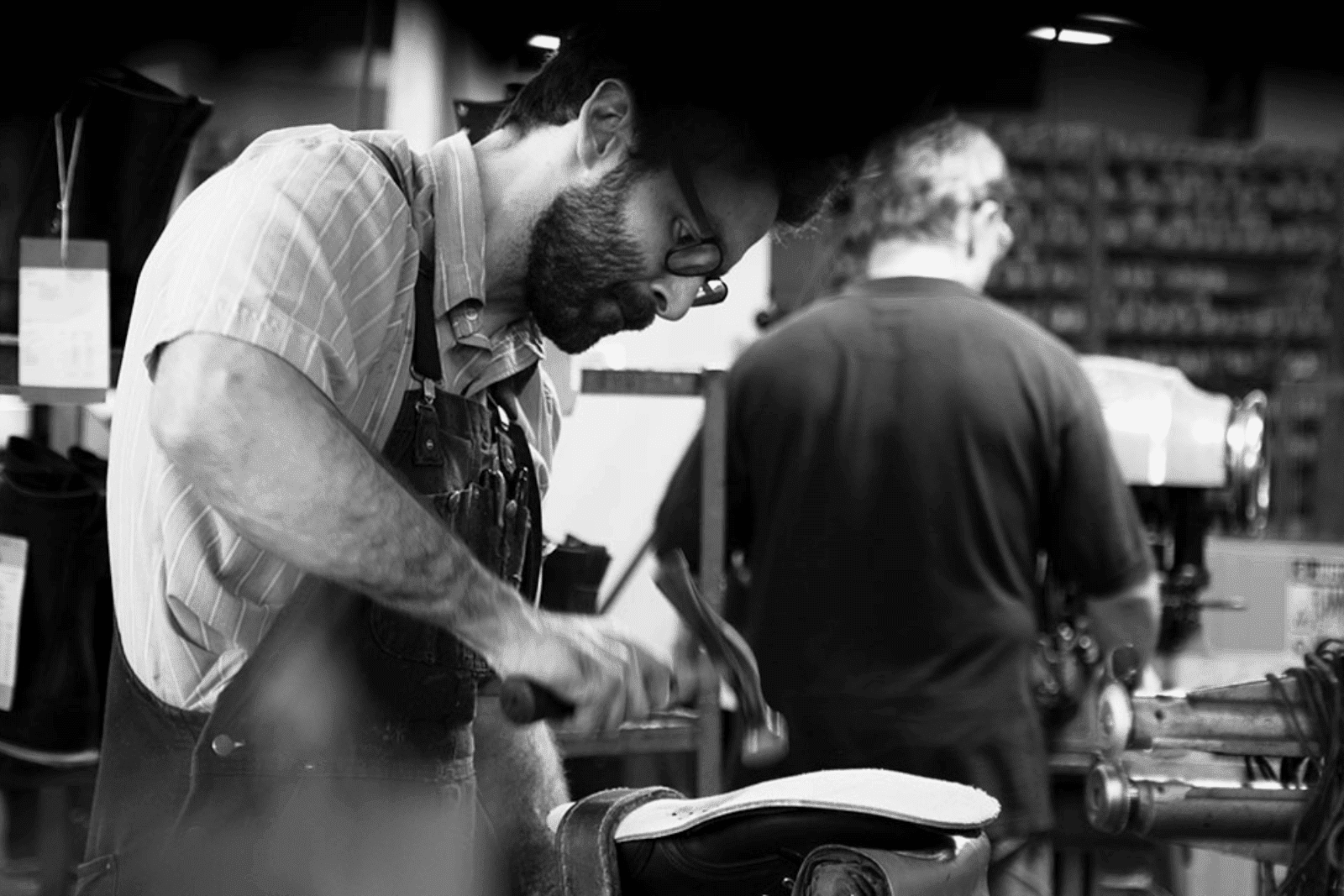
What Not To Put On Leather?
To preserve the quality of your leather items, avoid the following:
Water Or Excessive Moisture: Prolonged exposure to water can cause leather to warp, stain, and eventually lead to mold growth.1
Direct Heat Or Sunlight: Heat and sunlight can cause leather to dry out and crack.2
Ink or Chemicals: Avoid contact with ink, perfume, and other chemicals that can stain or damage the leather surface.
Sharp Objects: Be cautious with sharp objects that may scratch or cut the leather.
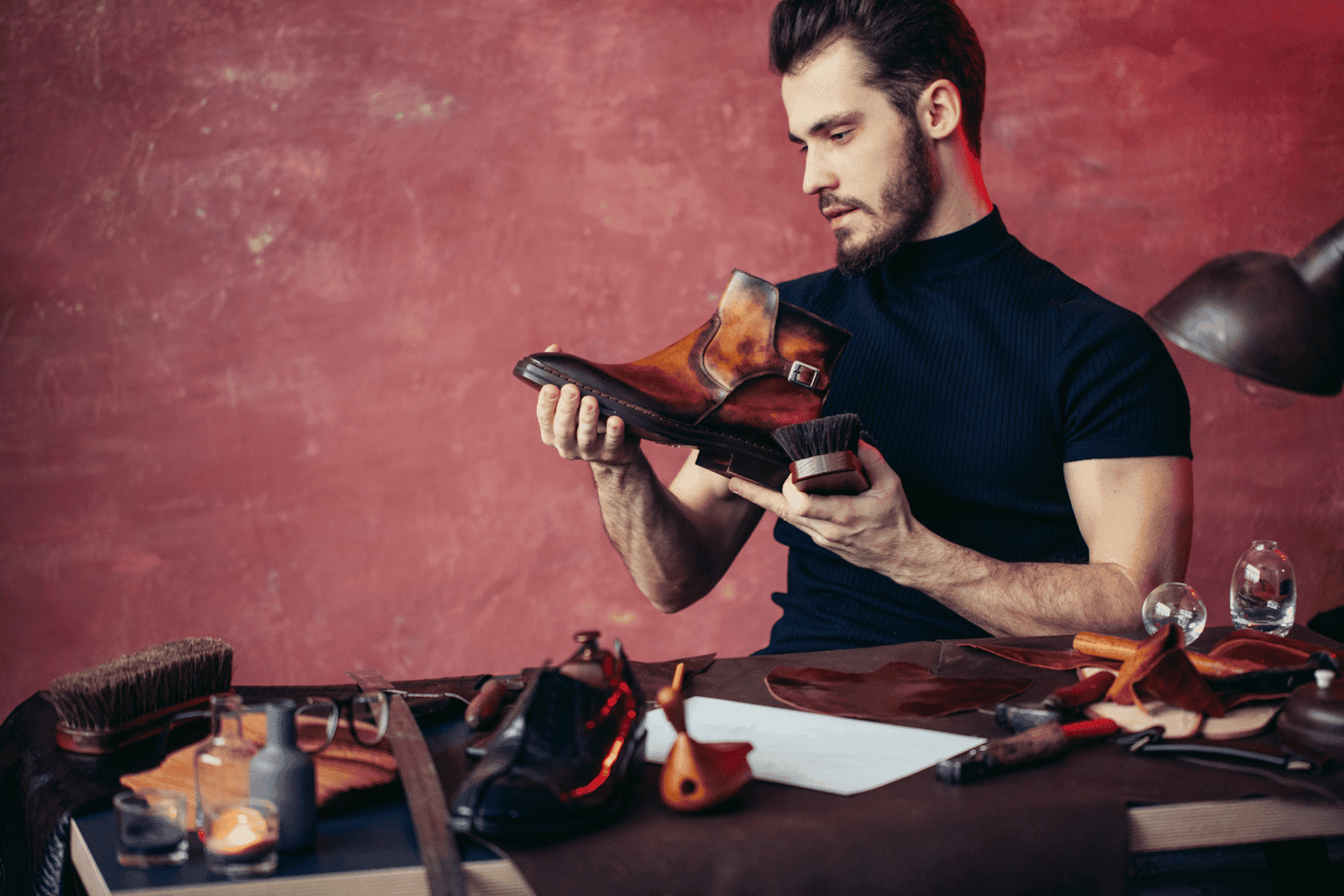
Why Is Leather Care Important?
Leather care is of paramount importance for several interesting reasons that go beyond mere aesthetics:
Protection From Damage: Daily use exposes leather items to various elements, such as dirt, spills, scratches, and UV rays. Proper care acts as a protective shield, guarding against potential damage and minimizing the need for repairs.
Economical Investment: Investing time and effort in leather care can save you money in the long run. By preserving the integrity of your leather items, you reduce the frequency of replacements, making it a cost-effective choice.
Sentimental Value: Leather items often carry sentimental value, representing special occasions, milestones, or gifts from loved ones. Caring for these items ensures that their sentimental significance remains intact for years to come.
How Does Leather Care Work?
Proper leather care involves a systematic approach that includes the following steps:
Cleaning: Regularly remove surface dust, dirt, and grime by gently wiping the leather with a soft, dry cloth. For deeper cleaning, use a mild soap and water solution to eliminate stubborn stains.
Conditioning: Apply a suitable leather conditioner to replenish the natural oils that keep the leather soft and supple. Conditioning prevents the material from drying out and helps maintain its luster.3
Storage: Proper storage plays a crucial role in preserving leather items. Store them in a cool, dry place, away from direct sunlight and excessive heat, to prevent fading and cracking.
Regular Inspection: Periodically inspect your leather goods for signs of wear, discoloration, or damage. Address any issues promptly to prevent further deterioration.
What Are The Benefits Of Leather Care?
Caring for your leather items through regular maintenance and thoughtful preservation offers a range of benefits:
Long-Lasting Beauty
With proper care, leather maintains its natural beauty and allure, enhancing your personal style and making a lasting impression.
Durability
Well-maintained leather products can withstand the rigors of daily use, ensuring they remain functional and reliable over time.
Resilience To Elements
Leather care provides a protective barrier against water damage, spills, and stains, safeguarding the material from potential harm.
If you’re committed to the longevity and aesthetics of your leather items, check out Nicks Leather Oil. This product not only restores dried and sun-faded leather but also offers excellent water repellency, ensuring your leather remains pristine. And if you’re in need of more robust protection, especially in challenging environments, Nicks Heavy Duty Leather Preservative ("Grease") is the go-to. This preservative provides a deep treatment, repelling various harmful elements from acids to water, ensuring your leather's longevity.
Comfort And Softness
Conditioning keeps the leather supple and comfortable, making it a pleasure to wear and use.
Environmental Responsibility
By extending the life of your leather items through proper care, you contribute to sustainable consumption and reduce waste.
Curious about who we are? Check out our welcome page to know more about us or see our history. You can also skip ahead and browse our belt collection or best-selling boots!
What Are The Alternatives To Leather Care?
While genuine leather care yields the best results, some alternatives exist for those seeking convenience or different materials:
- Faux Leather: Also known as synthetic leather or vegan leather, requires minimal maintenance and is more forgiving with stains and water.
- Pre-treated Leather: Some leather goods come pre-treated, reducing the need for extensive care and maintenance.
- Professional Services: For comprehensive cleaning, conditioning, and restoration, you can seek assistance from professional leather care experts.
- Leather Alternatives: Consider exploring other materials like canvas, suede, or fabric for a different style and care routine.
Final Thoughts On Leather Care
Proper leather care is the key to maintaining the exceptional quality and longevity of your cherished leather items. By following the cleaning, conditioning, and storage techniques discussed in this article, you can ensure that your crafted boots and leather goods remain in excellent condition for years to come.
At Nicks Boots, we take immense pride in creating fine leather goods, including our renowned boots, designed to withstand the test of time. Our commitment to quality craftsmanship and dedication to the trades industry shines through in every product we create. With our trades program, we strive to contribute to the growth and success of the trades profession, inspiring aspiring professionals to embark on fulfilling and rewarding careers.
Looking to keep your leather items fresh and fabulous? Let Nicks Boots be your companion in the journey of preserving elegance and durability.
Recommended readings:
- How Do I Know My Boot Size? Three Ways To Tell
- What's the Difference Between Men's and Women's Sizing?
- Where Do Most Leather Boot Makers Compromise?
Frequently Asked Questions
How often should I clean and condition my leather boots?
Cleaning and conditioning frequency depend on usage. As a general rule, do it every 3-6 months or when the leather appears dry or dirty.
Can I use olive oil to condition leather?
While some people recommend using olive oil as a DIY conditioner, it's best to stick to commercial leather conditioners. Olive oil can darken leather and may not provide the right nourishment.
How can I remove oil stains from leather?
Immediately blot excess oil with a clean cloth. Let the stain sit for a day or two to see if it dissipates. If not, consult a professional leather cleaner.
Can I speed up the leather drying process?
Avoid using direct heat sources or hair dryers to dry wet leather. Let it air dry naturally at room temperature.
What's the best way to remove scratches from leather?
Minor scratches can often be buffed out with a soft cloth. For deeper scratches, consult a leather care professional.
Can I clean leather with alcohol?
Cleaning leather with alcohol is not recommended. While alcohol can be effective in sanitizing and removing some stains, it can be too harsh for leather. Alcohol can strip the natural oils from the leather, leading to dryness and potential damage. Stick to gentle cleaning solutions specifically designed for leather to ensure its longevity and appearance.
What strengthens leather?
Leather is naturally strong and durable, but certain factors can enhance its strength and resilience. Regularly applying a suitable leather conditioner helps replenish essential oils, keeping the leather soft and supple. Using harsh chemicals or cleaning agents can weaken leather. Stick to mild soap and water or leather-specific products. Prolonged exposure to direct sunlight can cause leather to fade and become brittle. Store leather items away from excessive sunlight.
Is coconut oil good for leather?
While coconut oil is a popular natural moisturizer, it's not the best option for leather care. Coconut oil can darken leather and may not provide the necessary conditioning properties. Instead, opt for commercial leather conditioners that are specifically formulated to nourish and protect leather without causing discoloration.
What causes leather to go hard?
Several factors can cause leather to become hard and stiff over time. Without regular conditioning, leather can lose its natural oils, leading to dryness and stiffness. Prolonged exposure to water or excessive moisture can cause leather to stiffen as it dries. Over time, leather may naturally become less flexible due to wear and aging.
Can rain ruin leather?
Rain can potentially damage leather, especially if it's not properly cared for afterward. When leather gets wet, it can lose some of its natural oils and become more susceptible to cracking and stiffening as it dries.
Sources:
- What Happens When Leather Gets Wet? A Guide On Water-Damaged Leather – Leather Skill. (n.d.). Retrieved August 9, 2023, from https://www.leatherskill.com/what-happens-when-leather-gets-wet/
- Avoid sun damage on your valued leather items | Italian Leather. (2019, October 16). Www.italianleather.co.nz. https://www.italianleather.co.nz/avoid-sun-damage/#:~:text=Leather%20is%20naturally%20porous%20and
- The Best Products for Maintaining and Shining Leather Shoes. (2020, April 13). The New York Times. https://www.nytimes.com/wirecutter/reviews/best-leather-shoe-care-products/



